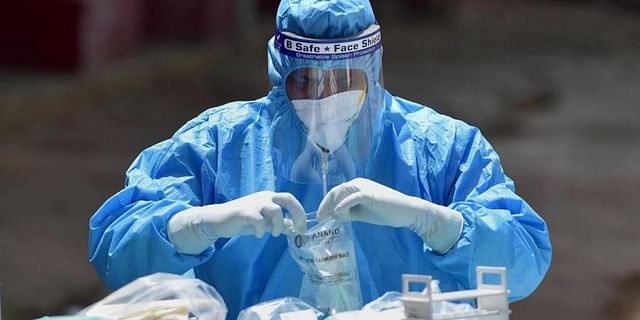
Scientists can prevent future pandemics by working on One Health approach

An interdisciplinary One Health approach and strong decision-making are our best defence against the next zoonotic-disease outbreak.
Costly delays in reporting and responding helped COVID-19 spread. But the failures that saw it become a pandemic were of a different kind.
Since then, scientists have been busy writing scientific papers offering guidance on how the response could be improved next time. These follow the findings and policy recommendations of an independent panel established by the World Health Organization (WHO).
It found delays at every turn, from notifying the WHO of potential outbreaks, to confirming human-to-human transmission of SARS-CoV-2 and declaring a public health emergency.
International Health Regulations, despite being legally binding in 196 countries, failed to promote rapid responses at the beginning of the pandemic.
Also read: 3 pieces of misinformation are making COVID thrive: WHO
The regulations set out the legal requirement for countries to report a suspected outbreak, but did not specify a timeframe for reporting. There has been a delay in reporting within two to three days by China, as the country that first detected a disease with a potential outbreak to the WHO system. One of these days fell during a holiday period.
It is debatable whether faster information-sharing improves the decision-making process. Even after more information was obtained about COVID-19, both the WHO and member countries delayed their decision-making on pandemic control measures. Global health consequences did not carry much weight in determining policy, even though COVID-19 was known to involve high-impact respiratory pathogens.
Many policies on pandemic response, including the International Health Regulations, focus on protecting human health. However, a more integrated approach may be more useful: One Health and Planetary Health consider interactions between animal, human and environmental health.
One Health has been around since the 19th century. German pathologist Robert Virchow, who studied how roundworm could be transmitted from pigs to humans, coined the term “zoonosis” to denote an infectious disease that is transmitted between humans and animals.
In 1966 US veterinarian Calvin Schwabe introduced One Medicine in a veterinary textbook. Schwabe described the similarities between veterinary and human medicine and emphasised the importance of collaboration between veterinarians and physicians in solving global health problems. This idea was expanded in 2004 in the Manhattan Principles: 12 principles on the relationship between humans, animals and the environment that are the foundation of Planetary Health.
The Rockefeller Foundation and the Lancet brought the latter to prominence in 2015 when they launched the Rockefeller Foundation Lancet Commission on Planetary Health. Both One Health and Planetary Health underline the need for an environmentally engaged, interdisciplinary approach to managing illnesses that affect both humans and animals.
Also read: What we know about the new COVID variant found in Israel
Fragmented governance between human, animal and environmental health might have contributed to delays in the detection of COVID-19. Transmission of an illness from animals to humans should have been anticipated, as COVID-19 is not the first zoonotic pandemic. The 2009 Influenza A pandemic and the 2012 Middle Eastern respiratory syndrome coronavirus (MERS-CoV) also involved disease transmission from animals to humans.
There are many ways to incorporate One Health and Planetary Health approaches into policy- making. The international community can further support collaboration between practitioners of human, animal and environmental health. Public health professionals can promote One Health and Planetary Health to a greater audience, and the concepts can be introduced earlier to medical students, veterinary students and environmental-engineering students. Collaboration between these fields can be fostered through research and community-development programs that focus on public health issues.
Leadership and rapid, evidence-based decision-making are crucial to an effective pandemic response. The panel’s analysis showed that countries that had managed similar outbreaks were able to react more quickly than the WHO. These countries had prioritised good governance over advanced technologies.
The WHO now has a job to strengthen its role as the leading health organisation and build effective operational capacity for health emergencies that fosters leadership and rapid decision-making.
The panel’s evaluation of pandemic preparedness shows human factors play an important role. Robust decision-making is needed to drive the rapid response essential to containing an outbreak.
Also read: Global spike in COVID cases puts India on high alert
Advanced technology can support the process of disseminating information and decision-making, but it is no match for people thinking on their feet and working across silos. The development of human capabilities is a vital part of pandemic preparedness.
Policy-makers should foster collaboration between disciplines and evidence-based decision-making to ensure any future outbreak does not lead to another catastrophic pandemic.
(This article was written by Grace Wangge of Monash University in Indonesia and published in 360info.org)

